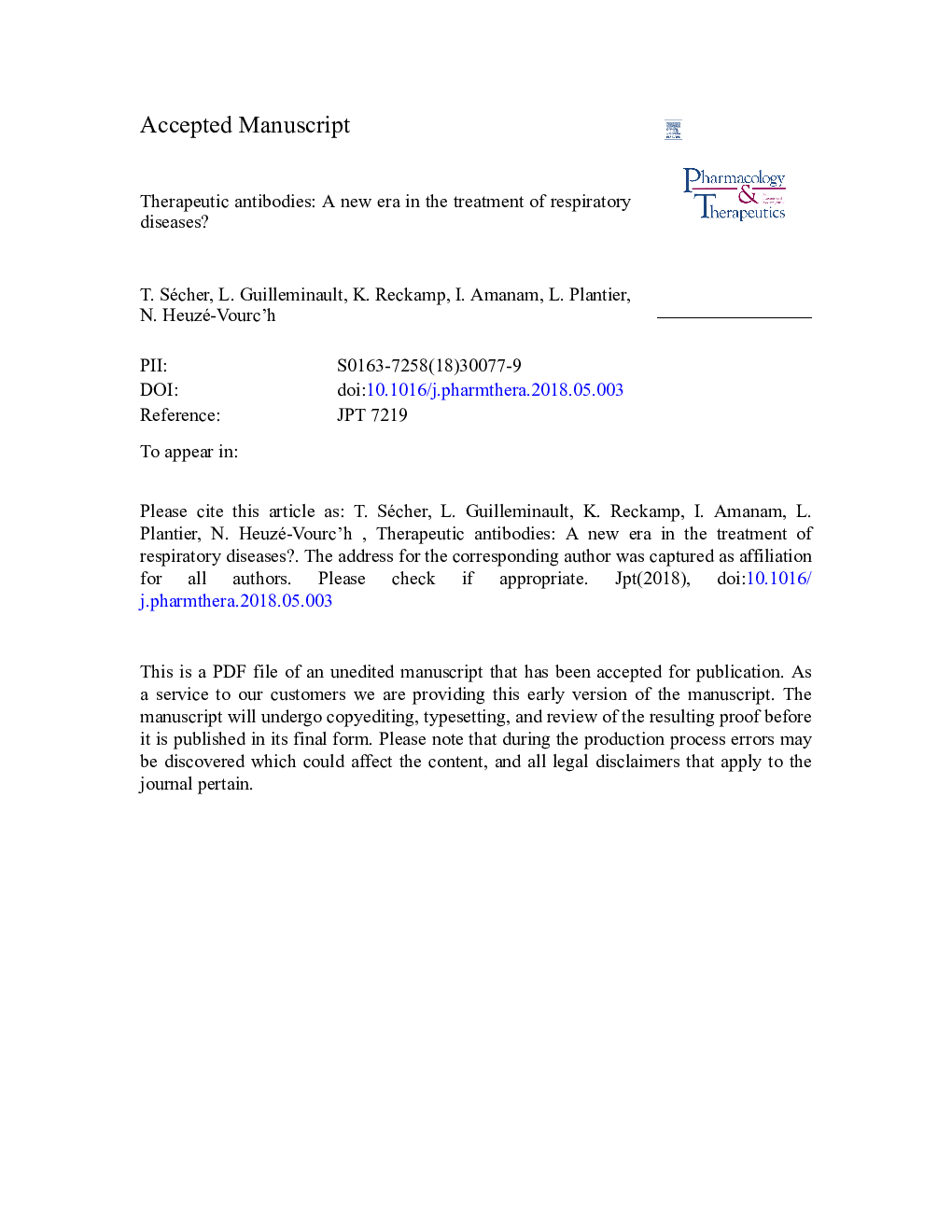| Article ID | Journal | Published Year | Pages | File Type |
|---|---|---|---|---|
| 8536775 | Pharmacology & Therapeutics | 2018 | 80 Pages |
Abstract
Respiratory diseases affect millions of people worldwide, and account for significant levels of disability and mortality. The treatment of lung cancer and asthma with therapeutic antibodies (Abs) is a breakthrough that opens up new paradigms for the management of respiratory diseases. Antibodies are becoming increasingly important in respiratory medicine; dozens of Abs have received marketing approval, and many more are currently in clinical development. Most of these Abs target asthma, lung cancer and respiratory infections, while very few target chronic obstructive pulmonary disease - one of the most common non-communicable causes of death - and idiopathic pulmonary fibrosis. Here, we review Abs approved for or in clinical development for the treatment of respiratory diseases. We notably highlight their molecular mechanisms, strengths, and likely future trends.
Keywords
CCLGM-CSFRALI/ARDSCytotoxic T lymphocyte-associated antigen 4HSGDM1CTLA4EGFRGM-CSFBALFVCCDCADCCCCRADCCTGFCeAantidrug antibodycarcinoembryonic antigenBispecific antibodiesChronic obstructive pulmonary diseaseCOPDcomplement-dependent cytotoxicityforced vital capacitygranulocyte-macrophage colony-stimulating factorEOsFabConnective tissue growth factorCystic fibrosisfragment crystallizablebronchoalveolar lavageCC chemokine ligandhemagglutininADAAntibodyAntibody drug conjugateCC chemokine receptor
Related Topics
Health Sciences
Pharmacology, Toxicology and Pharmaceutical Science
Pharmacology
Authors
T. Sécher, L. Guilleminault, K. Reckamp, I. Amanam, L. Plantier, N. Heuzé-Vourc'h,
